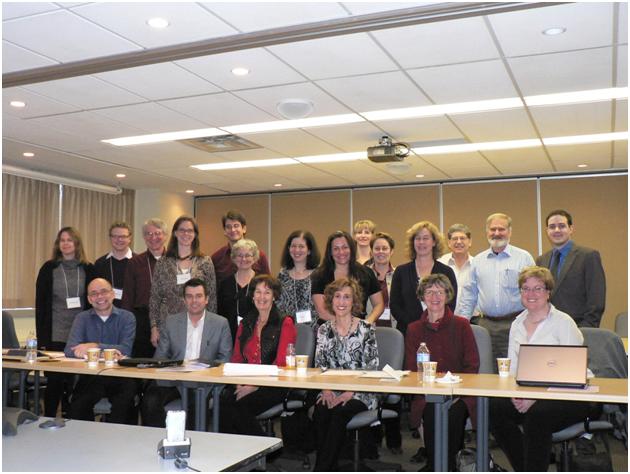By Tarek Bouhali
On December 8-9, 2011, the first meeting of “The Impact of Primary Care Teams on Multimorbidity (IMPCT): Optimizing care for patients living with multiple chronic conditions” team was held at the INSPQ (Institut national de santé publique du Québec) offices in Montréal (Quebec, Canada). Over the two days, we have greatly benefited from the very animated discussions among our panel of speakers and discussants. We would therefore like to thank and congratulate each one of them for sharing their wide-ranging perspectives.
This gathering of 28 team members and collaborators from various disciplines including academic researchers, policy-makers, public health practitioners, program specialists and representatives from government agencies was convened to examine issues related to multimorbidity in various Canadian jurisdictions (Quebec, Ontario, Alberta) as well as in many other countries such as the USA, the UK, the Netherlands and Australia.
During the consultation process and workshops, we received input and recommendations on intervention strategies that will help the IMPCT team enhance its efforts focused on patients with or at highest risk for multimorbidity and complexity. Although IMPCT interventions will be patient-centered, the IMPCT Panel has paid attention to recommendations of policy-makers to expand the reach to organizational levels.
The team’s leads (Martin Fortin, Jean-Frédéric Levesque and Renée F. Lyons) take pride in having hosted this meeting. They hope that the presentations given and the discussions that followed during this meeting have generated a better appreciation of the nuances on key issues and objectives, as well as research questions and strategic decisions that will be included in the team grant application to the Canadian Institutes of Health Research (CIHR).
Thanks again to all the participants and international collaborators for taking the time to be a part of this important meeting. We value members’ expertise and appreciate their continued support and commitment to the upcoming team grant proposal. A special thank you is owed to Meghan McMahon from CIHR for taking the time to present the details of the Canadian Institutes of Health Research – Community-Based Primary Health Care (CIHR CBPHC) Team Grant Competition to the meeting participants. We would also like to thank our international collaborators (Grant Russell, Australia; Jane Gunn, Australia; Michel Wensing, The Netherlands; Stewart Mercer, UK; Stephen Peckham, UK) who shared their views and experiences via telephone conferences.
The IMPCT team is preparing a meeting summary report that will be made available to all participants by next week.
Top row left to right: Christine Loignon, Guillaume Ruel, William L. Miller, Erin Strumpf, Antoine Boivin, Frances Gallagher, Debbie Feldman, Cecile Bensimon, Maud-Christine Chouinard, Sylvie Provost, Mary Byrnes, William Hogg, Benjamin F. Crabtree, Maxime Ouellette. Front row, left to right: Martin Fortin, Jean-Frédéric Lévesque, Renee F. Lyons, Catherine Hudon, Moira Stewart, Denise Campbell-Scherer. Meeting participants missing from the picture: Jeannie Haggerty, Robert Salois, Marie-Dominique Beaulieu.



